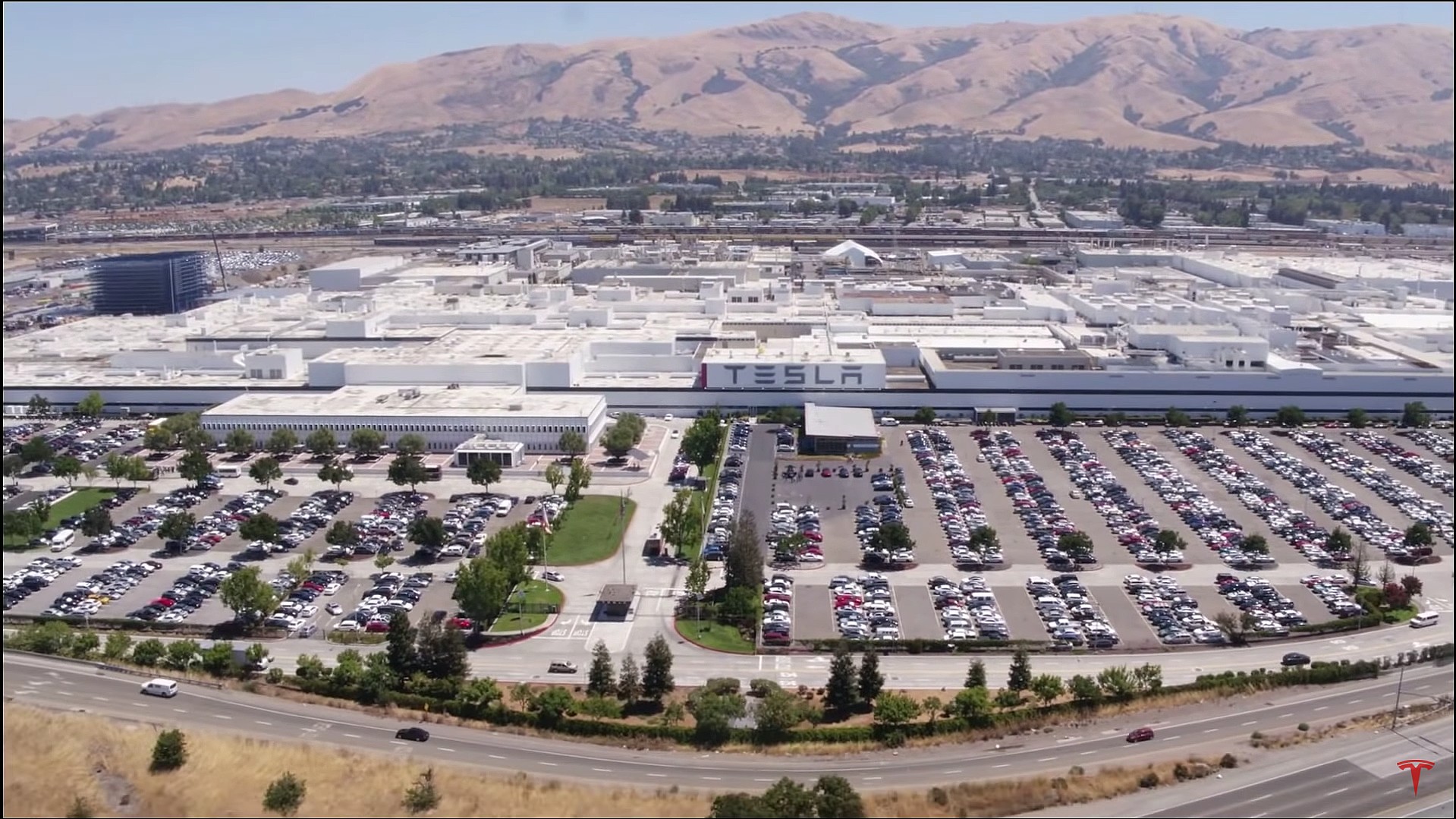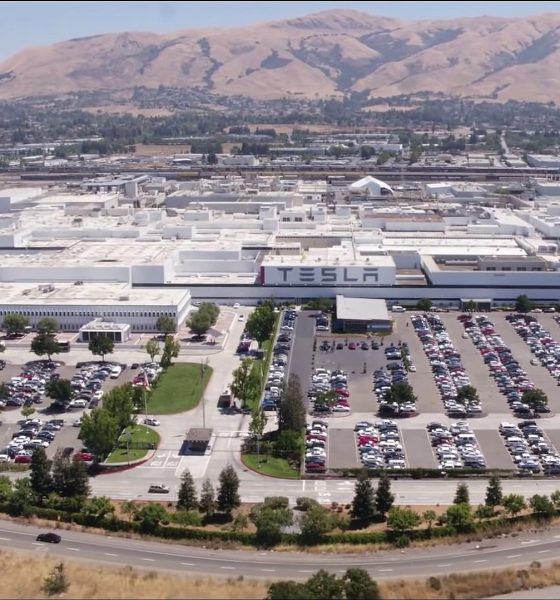

News
Tesla files complaint against OAL, DFEH for filing discrimination lawsuit without proper investigation
Tesla has filed a complaint against the California Office of Administrative Law (OAL) and the Department of Fair Employment and Housing (DFEH), accusing the agencies of rushing to file lawsuits against businesses without conducting investigations.
Tesla’s ten-page complaint was first seen by Reuters and stated that the OAL and DFEH adopted “underground regulations” that disregard basic requirements that need to be met before lawsuits can be filed in a justified manner. Tesla was accused in February of operating a racially segregated workplace at its Fremont Factory in Northern California, where African-American employees were harassed, discriminated against, and faced constant racial attacks on a somewhat daily basis.
The DFEH’s case against Tesla has been filed, and its allegations are very, very serious
Tesla’s filing on Tuesday aims to challenge the DFEH’s lawsuit by claiming the agency violated California laws by not first notifying the automaker of its claims nor giving it a chance to settle before submitting the case. Tesla posted a blog several days before the lawsuit was published refuting the claims, but details from the DFEH showed the allegations were incredibly serious.
The DFEH suit claimed:
“As early as 2012, Black and/or African American Tesla workers have complained that Tesla production leads, supervisors, and managers constantly use the n-word and other racial slurs to refer to Black workers. They have complained that swastikas, “KKK,” the n-word, and other racist writing are etched onto walls of restrooms, restroom stalls, lunch tables, and even factory machinery. They have complained that Black and/or African American workers are assigned to more physically demanding posts and the lowest-level contract roles, paid less, and more often terminated from employment than other workers.”
In October, a former Fremont factory employee, Owen Diaz, was awarded $137 million after suffering racial abuse while working at the plant from 2015 to 2016. Tesla challenged the payout, which was eventually reduced to $15 million. However, it is just one of many claims of racial abuse at the factory.
In response to the DFEH’s lawsuit, Tesla stated:
“Tesla strongly opposes all forms of discrimination and harassment and has a dedicated Employee Relations team that responds to and investigates all complaints. We also have a Diversity, Equity, and Inclusion team whose work is shown in this public report. Tesla has always disciplined and terminated employees who engage in misconduct, including those who use racial slurs or harass others in different ways. We recently rolled out an additional training program that reinforces Tesla’s requirement that all employees must treat each other with respect and reminds employees about the numerous ways they can report concerns, including anonymously. Above all, Tesla continues to seek to provide a workplace that is safe, respectful, fair, and inclusive—all of which are vital to achieving our mission.”
Tesla urged judges in April to pause the DFEH lawsuit as the agency “has been asked on almost 50 occasions by individuals who believe they were discriminated against or harassed to investigate Tesla,” the automaker said. “On every single occasion, when the DFEH closed an investigation, it did not find misconduct against Tesla. It therefore strains credibility for the agency to now allege, after a three-year investigation, that systematic racial discrimination and harassment somehow existed at Tesla. A narrative spun by the DFEH and a handful of plaintiff firms to generate publicity is not factual proof,” Tesla wrote.
I’d love to hear from you! If you have any comments, concerns, or questions, please email me at joey@teslarati.com. You can also reach me on Twitter @KlenderJoey, or if you have news tips, you can email us at tips@teslarati.com.

Cybertruck
Tesla drops latest hint that new Cybertruck trim is selling like hotcakes
According to Tesla’s Online Design Studio, the new All-Wheel-Drive Cybertruck will now be delivered in April 2027. Earlier orders are still slated for early this Summer, but orders from here on forward are now officially pushed into next year:

Tesla’s new Cybertruck offering has had its delivery date pushed back once again. This is now the second time, and deliveries for the newest orders are now pushed well into 2027.
According to Tesla’s Online Design Studio, the new All-Wheel-Drive Cybertruck will now be delivered in April 2027. Earlier orders are still slated for early this Summer, but orders from here on forward are now officially pushed into next year:
🚨 Tesla has updated the $59,990 Cybertruck Dual Motor AWD’s estimated delivery date to April 2027.
First deliveries are still slated for June, but if you order it now, you’ll be waiting over a year.
Demand appears to be off the charts for the new Cybertruck and consumers are… pic.twitter.com/raDCCeC0zP
— TESLARATI (@Teslarati) February 26, 2026
Just three days ago, the initial delivery date of June 2026 was pushed back to early Fall, and now, that date has officially moved to April 2027.
The fact that Tesla has had to push back deliveries once again proves one of two things: either Tesla has slow production plans for the new Cybertruck trim, or demand is off the charts.
Judging by how Tesla is already planning to raise the price based on demand in just a few days, it seems like the company knows it is giving a tremendous deal on this spec of Cybertruck, and units are moving quickly.
That points more toward demand and not necessarily to slower production plans, but it is not confirmed.
Tesla Cybertruck’s newest trim will undergo massive change in ten days, Musk says
Tesla is set to hike the price on March 1, so tomorrow will be the final day to grab the new Cybertruck trim for just $59,990.
It features:
- Dual Motor AWD w/ est. 325 mi of range
- Powered tonneau cover
- Bed outlets (2x 120V + 1x 240V) & Powershare capability
- Coil springs w/ adaptive damping
- Heated first-row seats w/ textile material that is easy to clean
- Steer-by-wire & Four Wheel Steering
- 6’ x 4’ composite bed
- Towing capacity of up to 7,500 lbs
- Powered frunk
Interestingly, the price offering is fairly close to what Tesla unveiled back in late 2019.
Elon Musk
Elon Musk outlines plan for first Starship tower catch attempt
Musk confirmed that Starship V3 Ship 1 (SN1) is headed for ground tests and expressed strong confidence in the updated vehicle design.

Elon Musk has clarified when SpaceX will first attempt to catch Starship’s upper stage with its launch tower. The CEO’s update provides the clearest teaser yet for the spacecraft’s recovery roadmap.
Musk shared the details in recent posts on X. In his initial post, Musk confirmed that Starship V3 Ship 1 (SN1) is headed for ground tests and expressed strong confidence in the updated vehicle design.
“Starship V3 SN1 headed for ground tests. I am highly confident that the V3 design will achieve full reusability,” Musk wrote.
In a follow-up post, Musk addressed when SpaceX would attempt to catch the upper stage using the launch tower’s robotic arms.
“Should note that SpaceX will only try to catch the ship with the tower after two perfect soft landings in the ocean. The risk of the ship breaking up over land needs to be very low,” Musk clarified.
His remarks suggest that SpaceX is deliberately reducing risk before attempting a tower catch of Starship’s upper stage. Such a milestone would mark a major step towards the full reuse of the Starship system.
SpaceX is currently targeting the first Starship V3 flight of 2026 this coming March. The spacecraft’s V3 iteration is widely viewed as a key milestone in SpaceX’s long-term strategy to make Starship fully reusable.
Starship V3 features a number of key upgrades over its previous iterations. The vehicle is equipped with SpaceX’s Raptor V3 engines, which are designed to deliver significantly higher thrust than earlier versions while reducing cost and weight.
The V3 design is also expected to be optimized for manufacturability, a critical step if SpaceX intends to scale the spacecraft’s production toward frequent launches for Starlink, lunar missions, and eventually Mars.
News
Tesla FSD (Supervised) could be approved in the Netherlands next month: Musk
Musk shared the update during a recent interview at Giga Berlin.

Tesla CEO Elon Musk shared that Full Self-Driving (FSD) could receive regulatory approval in the Netherlands as soon as March 20, potentially marking a major step forward for Tesla’s advanced driver-assistance rollout in Europe.
Musk shared the update during a recent interview at Giga Berlin, noting that the date was provided by local authorities.
“Tesla has the most advanced real-world AI, and hopefully, it will be approved soon in Europe. We’re told by the authorities that March 20th, it’ll be approved in the Netherlands,’ what I was told,” Musk stated.
“Hopefully, that date remains the same. But I think people in Europe are going to be pretty blown away by how good the Tesla car AI is in being able to drive.”
Tesla’s FSD system relies on vision-based neural networks trained on real-world driving data, allowing vehicles to navigate using cameras and AI rather than traditional sensor-heavy solutions.
The performance of FSD Supervised has so far been impressive. As per Tesla’s safety report, Full Self-Driving Supervised has already traveled 8.3 billion miles. So far, vehicles operating with FSD Supervised engaged recorded one major collision every 5,300,676 miles.
In comparison, Teslas driven manually with Active Safety systems recorded one major collision every 2,175,763 miles, while Teslas driven manually without Active Safety recorded one major collision every 855,132 miles. The U.S. average during the same period was one major collision every 660,164 miles.
If approval is granted on March 20, the Netherlands could become the first European market to greenlight Tesla’s latest supervised FSD (Supervised) software under updated regulatory frameworks. Tesla has been working to secure expanded FSD access across Europe, where regulatory standards differ significantly from those in the United States. Approval in the Netherlands would likely serve as a foundation for broader EU adoption, though additional country-level clearances may still be required.








